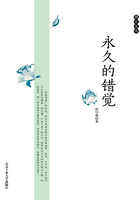XVIII. Against this, some Man may demand, first, Whether it doth not follow, that the City must be obeyed if it command us directly to affront God, or forbid us to worship him? I say, it does not follow, neither must we obey. For to affront, or not to worship at all, cannot by any Man be understood for a manner of worshipping; neither also had any one, before the constitution of a City, of those who acknowledge God to rule, a Right to deny him the honour which was then due unto him; nor could he therefore transfer a Right on the City of commanding any such things. Next, if it be demanded whether the City must be obeyed if it command somewhat to be said, or done, which is not a disgrace to God directly, but from whence by reasoning disgracefull consequences may be derived: as for example, if it were commanded to worship God in an image, before those who account that honourable? Truly it is to be done. For Worship is instituted in signe of Honour; but to Worship him thus, is a signe of honour, and increaseth Gods Honour among those who do so account of it. Or if it be commanded to call God by a name which we know not what it signifies, or how it can agree with this word, God? That also must be done; for what we do for Honours sake, (and we know no better), if it be taken for a signe of Honour, it is a signe of Honour; and therefore if we refuse to doe it, we refuse the enlarging of Gods Honour. The same judgement must be had of all the Attributes and Actions about the meerly rationall Worship of God which may be controverted, and disputed; for though these kind of commands may be sometimes contrary to right reason, and therefore sins in them who command them, yet are they not against right reason, nor sins in Subjects, whose right reason in points of Controversie is that, which submits its selfe to the reason of the City. Lastly, if that Man, or Councell, who hath the Supreme Power, command himselfe to be Worshipt with the same Attributes, and Actions, wherewith God is to be Worshipt, the question is, whether we must obey? There are many things which may be commonly attributed both to God, and Men; for even Men may be Praised, and Magnified; and there are many actions whereby God, and Men, may be Worshipt. But the significations of the Attributes, and Actions, are onely to be regarded: Those Attributes therefore, whereby we signify our selves to be of an opinion, that there is any man endued with a Soveraignty independent from God, or that he is immortall, or of infinite power, and the like, though commanded by Princes, yet must they be abstained from. As also from those Actions signifying the same, as Prayer to the absent; to aske those things which God alone can give, as Rain, and Fair weather; to offer him what God can onely accept, as Oblations, Holocausts; or to give a Worship, then which a greater cannot be given, as Sacrifice. For these things seeme to tend to this end, that God may not be thought to rule, contrary to what was supposed from the beginning. But genuflection, prostration, or any other act of the body whatsoever, may be lawfully used even in civill Worship. for they may signifie an acknowledgment of the civill power onely. For Divine Worship is distinguisht from civill, not by the motion, placing, habit, or gesture of the Body, but by the declaration of our opinion of him whom we doe Worship; as if we cast down our selves before any man, with intention of declaring by that Signe that we esteeme him as God, it is Divine Worship; if we doe the same thing as a Signe of our acknowledgment of the civill Power, it is civill Worship. Neither is the Divine Worship distinguished from Civill by any action usually understood by the words latreia and douleia, whereof the former marking out the Duty of Servants, the latter their Destiny, they are words of the same action in degree.
Truly it is to be done We said in the 14. Article of this Chapter, That they who attributed limits to God, transgrest the naturall Law concerning Gods Worship. Now they who worship him in an Image, assigne him limits; wherefore they doe that which they ought not to doe, and this place seemes to contradict the former.
We must therefore know first, that they who are constrained by Authority, doe not set God any bounds, but they who command them; for they who worship unwillingly, doe worship in very deed, but they either stand or fall there, where they are commanded to stand or fall by a lawfull Soveraign. Secondly, I say it must be done, not at all times, and every where, but on supposition that there is no other rule of worshipping God beside the dictates of humane reason; for then the will of the City stands for Reason.
But in the Kingdome of God by way of Covenant, whether old, or new, where idolatry is expressely forbid, though the City commands us to worship thus, yet must we not do it. Which, if he shall consider, who conceived some repugnancy between this, and the 14. Article, will surely cease to think so any longer.
XIX. From what hath been said may be gathered, that God reigning by the way of naturall reason onely, Subjects doe sinne, First, if they break the morall Laws, which are unfolded in the second and third Chapters. Secondly, if they break the Lawes, or commands of the City in those things which pertain to Justice.
Thirdly, if they worship not God, kata ta nomika. Fourthly, if they confesse not before men, both in words, and deeds, that there is one God most good, most great, most blessed, the Supreme King of the World, and of all worldly Kings; that is to say, if they doe not worship God. This fourth sinne in the naturall Kingdome of God, by what hath been said in the foregoing Chapter, in the second Article, is the sinne of Treason against the Divine Majesty; for it is a denying of the Divine Power, or Atheisme.
For sinnes proceed here, just as if we should suppose some man to be the Soveraign King, who being himselfe absent, should rule by his Vice-Roy; against whom sure they would transgresse who should not obey his Vice-Roy in all things, except he usurpt the Kingdome to himself, or would give it to some other; but they who should so absolutely obey him, as not to admit of this exception, might be said to be guilty of Treason.














